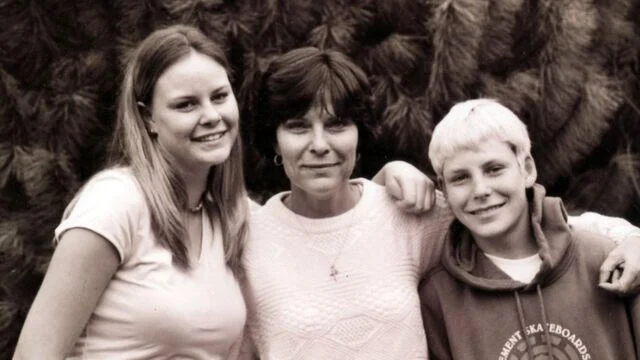“The Boy Who Killed His Twin”: 48 Hours Reports on Chilling Case of Benjamin Elliott September 27 2025

CBS’s 48 Hours launches its 38th season with a haunting premiere titled “The Boy Who Killed His Twin”, airing on Saturday, September 27, 2025. The episode, led by veteran correspondent Erin Moriarty, revisits the disturbing case of Benjamin Elliott, a Houston teenager accused of murdering his twin sister, Meghan, in 2021. What sets this case apart is not only the tragic nature of the crime but the defense Elliott presented—that he had been sleepwalking when he fatally stabbed her.
The premiere delivers an intimate and unsettling look at a family torn apart, blending courtroom footage, expert testimony, and deeply personal interviews. It offers a disturbing yet thought-provoking exploration of consciousness, accountability, and the boundaries of medical science in criminal justice.
The Night of the Crime
On September 29, 2021, at around 4:42 a.m., Harris County deputies responded to a 911 call from a residence on Brown Meadow Court in Katy, Texas. Benjamin Elliott, then 17 years old, had reported that he had stabbed his twin sister, Meghan. When first responders arrived, they found him performing CPR on her. Despite his efforts, Meghan, also 17, was pronounced dead at the scene with multiple stab wounds.
According to court documents and police records, Benjamin told investigators that he woke up in his sister’s room with a knife lodged in her neck. Believing he was dreaming, he initially removed the knife before realizing the situation was real. He turned on the lights, attempted to stop the bleeding, and then ran to his own room to call 911. Their parents were asleep in the same house at the time, unaware of the unfolding horror just a few rooms away.
A Sleepwalking Defense
What followed the arrest was a legal defense rarely seen in American courtrooms: Benjamin claimed he had been sleepwalking when the fatal attack occurred. His defense attorneys, Cary Hart and Wes Rucker, presented this as a case of parasomnia—a sleep disorder that can lead individuals to perform complex behaviors, including acts of violence, without conscious awareness.
To support the claim, the defense brought in Dr. Jerald Simmons, a neurologist who testified that sleepwalking-related violence, though rare, is medically possible. He explained that individuals experiencing certain forms of parasomnia could appear to be awake and functioning while being unconscious and unaware of their actions.
On the other side, prosecutors Maroun Koutani and Megan Long sought to dismantle the sleepwalking theory. They argued that Benjamin’s actions were too coordinated to have occurred while unconscious. Evidence showed he was awake and on his phone just before the attack, had turned off his school alarm, and had logged physical steps walking between rooms. Prosecutors also suggested he may have muffled Meghan’s screams with a pillow, indicating intent and awareness.
The Trial and Key Testimonies
The trial drew attention for its emotional intensity and scientific complexity. Jurors heard not only from experts but also from the Elliott parents, who were grappling with the unimaginable loss of one child and the prosecution of another. The courtroom became a place of grief and confusion, where science clashed with sorrow.
Testimony from psychologists and sleep specialists painted conflicting pictures. Dr. Mark Pressman, testifying for the prosecution, cast doubt on the sleepwalking defense, stating that Elliott’s behavior after the stabbing—calling 911, performing CPR—demonstrated awareness. Meanwhile, the defense emphasized the rarity but possibility of a parasomnia episode leading to violence.
Jurors also heard from Drue Whittecar, a close family friend, and from Benjamin himself, who maintained he had no memory of the stabbing. Three jurors—Bill Price, Wesley Scott, and Carlos Fidalgo—spoke with 48 Hours about the weight of their decision, revealing how they deliberated between compassion, science, and justice.
The Verdict and Sentencing
After five hours of deliberation, the Harris County jury returned a guilty verdict on February 24, 2025. The next day, Judge Danilo Lacayo sentenced Benjamin Elliott to 15 years in prison. The sentence fell well below the 40 years prosecutors had requested, reflecting the complexity of the case and the lack of a clear motive.
Judge Lacayo noted Elliott’s clean record and his conduct while out on bond. He also acknowledged the jury’s request for leniency. Under Texas law, Elliott will be eligible for parole after serving half his sentence—seven and a half years.
Despite the conviction, Elliott’s defense team expressed satisfaction with the outcome. “We are very happy with the sentence,” attorney Wes Rucker said. “We think it reflects what the judge thought was a weakness in the State’s case.” Prosecutors declined to comment after sentencing.
Legal and Medical Implications
The Elliott case joins a small but controversial group of criminal trials involving sleepwalking defenses. While rare, such defenses have appeared before—most notably in the 2019 Harris County trial of Raymond Lazarine, who claimed to have killed his wife while sleepwalking. He, too, was convicted.
The science of parasomnia remains unsettled, and cases like Elliott’s raise difficult questions about criminal responsibility and the limits of forensic medicine. Can someone be held fully accountable for actions committed in an altered state of consciousness? And how should courts weigh medical opinion against circumstantial evidence?
The jury in Elliott’s case ultimately believed the crime did not occur in a vacuum. They saw premeditation in the facts and found the defense insufficient to outweigh the physical evidence. The legal system, while open to complex defenses, remains rooted in proof and responsibility.
Aftermath and Reflection
The Elliott family’s tragedy defies simple explanation. Two children—twins who grew up side by side—are now separated by death and incarceration. The parents, Michael and Kathy Elliott, have been left to mourn one child while reconciling the fate of another. Their emotional interviews during the 48 Hours episode provide a window into a grieving process that will likely last a lifetime.
“The Boy Who Killed His Twin” delivers more than just a true crime story. It confronts viewers with the fragility of understanding within families and the boundaries of science in courtrooms. It is a case that will continue to be studied in legal and psychological circles—and remembered in the hearts of those it touched.
More “The Boy Who Killed His Twin”
- “The Boy Who Killed His Twin”: 48 Hours Reports on Chilling Case of Benjamin Elliott September 27 2025
- Where Is Benjamin Elliott Now? 2025 Update & Background
- What Happened to Meghan Elliott? 2025 Update & Background
More Feature Articles
- “He’s Right Behind You”: 20/20’s Season Premiere on Kristil Krug Homicide September 26 2025
- “The Phantom”: Dateline Reports on Kristil Krug Homicide September 26 2025
- “The Boy Who Killed His Twin”: 48 Hours Reports on Chilling Case of Benjamin Elliott September 27 2025
- 48 Hours Preview: “Coached to Kill” Airs Saturday September 27 at 9:30 PM
- 60 Minutes Reports on “A Lonely Voice”, “The Mystery of the Eagle S” & “Dana White” September 28 2025






